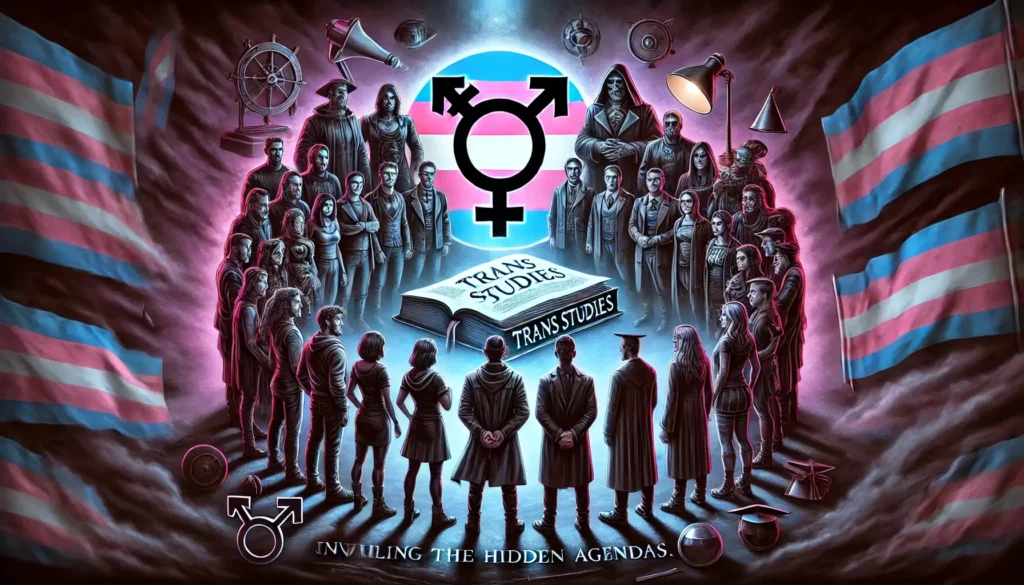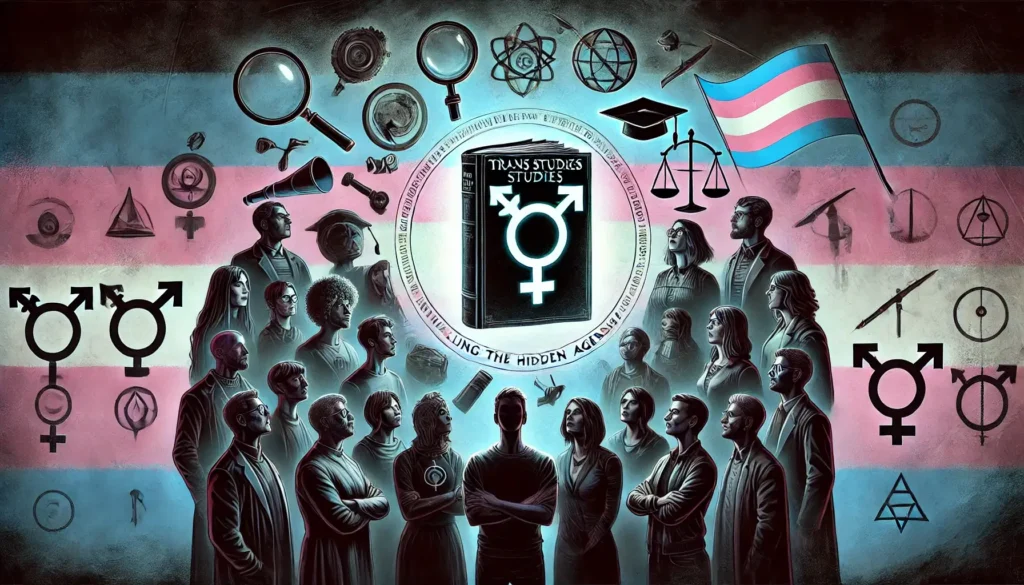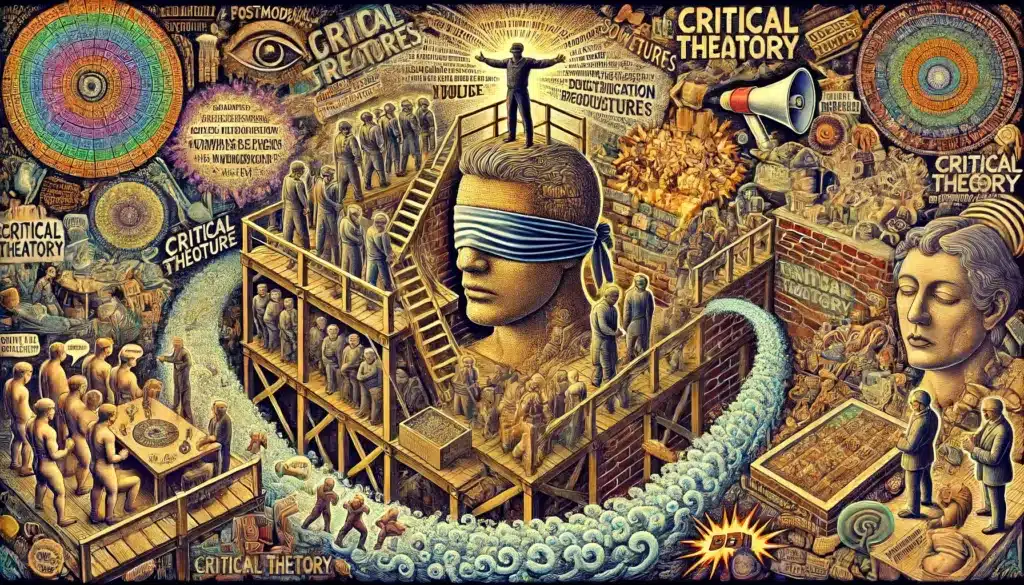Trans studies
Trans Studies is a so-called academic field that claims to analyze the experiences, identities, and political agendas of transgender individuals and communities. It encompasses various disciplines, including sociology, psychology, gender, and cultural studies. Advocates of trans studies highlight its importance in addressing the unique challenges faced by transgender people, promoting inclusivity, and advancing social justice.
The field emphasises identity politics, operates within academic echo chambers, and prioritises advocacy over objective scholarship. This extends to concerns about ideological indoctrination, the marginalisation of dissenting voices, and the perceived impact on public policy and feminist discourses.
The following sections examine the various criticisms and concerns raised about trans studies. This exploration aims to comprehensively understand the field critically, highlighting the key arguments and considerations that inform this sceptical outlook.
Overemphasis on Identity Politics
Trans Studies place too much emphasis on identity politics, detracting from other critical issues such as economic inequality or broader human rights concerns. This focus is divisive and a distraction from what they consider more pressing social problems.
Academic Echo Chambers
Trans Studies is an academic echo chamber where scholars and students primarily reinforce each other’s beliefs and ideas without sufficient critical debate or engagement with opposing viewpoints. This insularity is viewed as limiting the field’s intellectual rigour and societal impact.

Agenda-Driven Research
Research in trans studies is agenda-driven, prioritising advocacy over objective scholarship. The field promotes a specific social or political agenda rather than engaging in unbiased inquiry.
Marginalisation of Dissenting Voices
Trans studies marginalise and dismiss dissenting voices, including those from within the LGBTQ+ community who may have different perspectives on gender and identity—this suppression of debate is perceived as undermining the field’s credibility.
Potential for Ideological Indoctrination
There are concerns that trans studies programmes engage in ideological indoctrination rather than education, promoting a particular worldview without encouraging students to assess different perspectives critically. This approach stifles intellectual diversity and critical thinking.
Financial and Career Incentives
The financial and career incentives for academics to align with popular or politically favourable positions within trans studies. The growth of this field is driven more by funding opportunities and career advancement than by genuine scholarly interest or societal need.
Questioning Scientific Validity
The scientific validity of the research in trans studies is dubious, as it lacks empirical support or is based on subjective interpretations. The field is more aligned with social constructivism than with rigorous scientific methodology.
Influence on Public Policy
The influence of trans studies on public policy is disproportionate and misguided. Policies informed by this field prioritise the interests of a small minority over the needs of the broader population, leading to contentious or controversial outcomes.
Cultural and Historical Relativism
Trans studies embrace cultural and historical relativism; this approach undermines universal principles or objective standards. The field’s emphasis on the fluidity of gender and identity as destabilising or relativistic.
Impact on Feminist Discourses
Trans Studies have complicated and undermined traditional feminist discourses, leading to tensions and conflicts within feminist movements. The focus on gender identity is diverting attention from issues related to biological sex, such as reproductive rights, gender-based violence, and economic inequality—the integration of trans issues into feminist platforms is diluting the original goals of feminism.
Social and Political Polarisation
The prominence of trans studies in academic and social arenas contributes to social and political polarisation. It promotes ideas and policies that are divisive, creating backlash and resistance from those who hold traditional views on gender and sex. This polarisation exacerbates cultural conflicts rather than fosters understanding and inclusivity.
Concerns Over Free Speech
There are also substantial concerns over free speech within the context of trans studies. The field promotes a climate where dissenting opinions are not tolerated, leading to self-censorship among those who fear being labelled as transphobic or bigoted. This threat to free speech is a significant issue.
Perception of Victimhood
Trans Studies foster a culture of victimhood, where individuals are encouraged to view themselves primarily through the lens of oppression and marginalisation. Focusing on victimhood is disempowering, reinforcing a sense of helplessness rather than promoting resilience and agency.
Questioning Practical Outcomes
Finally, we question the practical outcomes of trans studies. Despite the academic attention and resources devoted to the field, tangible improvements in the lives of transgender individuals are limited. The field is focused on theoretical discussions rather than on developing concrete solutions to the real-world challenges faced by transgender people.
Conclusion
In summary, trans studies are an overly identity-focused, agenda-driven field that prioritises ideological conformity over intellectual diversity and practical impact. They create social polarization, marginalise dissenting voices, and complicate traditional feminist discourses. The field’s scientific validity, practical outcomes, and societal value are questionable.


